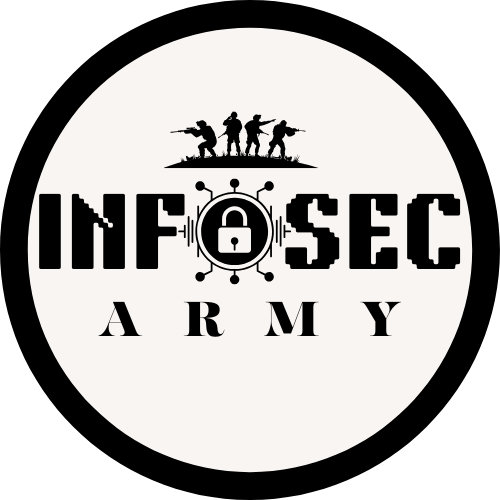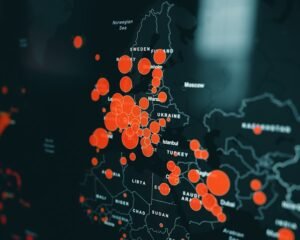Nmap, or Network Mapper, is a widely utilized open-source tool for network exploration and security auditing. It operates by sending packets and analyzing responses to discover hosts and services on a computer network. Network administrators, security professionals, and ethical hackers employ Nmap to identify potential security vulnerabilities and assess the security posture of their networks.
However, the use of Nmap and similar network scanning tools raises significant legal questions regarding the boundaries of permissible conduct in the context of network security. Network scanning tools, including Nmap, are crucial for maintaining the security of computer networks. By utilizing these tools, organizations can identify potential weaknesses in their systems and take proactive measures to mitigate security risks.
Nevertheless, the use of these tools also raises concerns about the legality of scanning networks without proper authorization. It is essential for individuals and organizations to understand the legal implications of using Nmap and other network scanning tools to ensure compliance with applicable laws and regulations.
Key Takeaways
- Nmap is a legal network scanning tool when used for authorized and ethical purposes.
- Understanding the legal implications of network scanning tools is crucial for compliance with laws and regulations.
- Nmap can be used in compliance with laws and regulations by obtaining proper authorization and consent before scanning a network.
- Ethical use of Nmap and network scanning tools involves respecting privacy and obtaining permission before conducting scans.
- Illegal network scanning can lead to potential risks and consequences, including legal action and damage to reputation.
The Legal Implications of Network Scanning
Unauthorized Access and Hacking
In many jurisdictions, unauthorized access to computer systems, including network scanning without permission, is prohibited under computer crime laws. This type of activity can be considered a form of hacking or intrusion, which is illegal and can result in severe legal consequences.
Legal Implications in the United States
In the United States, the Computer Fraud and Abuse Act (CFAA) prohibits unauthorized access to protected computer systems, including network scanning without authorization. The CFAA imposes criminal and civil liability for unauthorized access to computer systems, and individuals or organizations found in violation of the CFAA may face criminal prosecution and civil lawsuits.
Global Legal Implications
Similarly, other countries have enacted laws and regulations that prohibit unauthorized access to computer networks, making it essential for individuals and organizations to understand the legal implications of using Nmap and other network scanning tools.
Nmap and Compliance with Laws and Regulations
When using Nmap and other network scanning tools, it is crucial to ensure compliance with applicable laws and regulations governing computer security and privacy. Organizations should obtain proper authorization before conducting network scans to avoid potential legal consequences. Authorization can be obtained through explicit permission from the owner or administrator of the network, or through legal mechanisms such as penetration testing agreements or bug bounty programs.
In addition to obtaining authorization, organizations should also consider the impact of privacy laws on their use of Nmap and other network scanning tools. Many jurisdictions have enacted privacy laws that regulate the collection and use of personal information, including data obtained through network scans. Organizations should be mindful of privacy laws when conducting network scans to avoid violating individuals’ privacy rights and facing legal repercussions.
Ethical Use of Nmap and Network Scanning Tools
| Topic | Details |
|---|---|
| Network Scanning Tools | Nmap, Wireshark, Nessus, etc. |
| Legality | Depends on the intent and authorization |
| Authorized Use | Penetration testing, network security |
| Unauthorized Use | Hacking, unauthorized access |
| Legal Consequences | Fines, imprisonment, civil lawsuits |
In addition to legal considerations, it is essential to consider the ethical implications of using Nmap and other network scanning tools. Ethical use of these tools involves respecting the rights and privacy of others, obtaining proper authorization before conducting scans, and using the information obtained from scans responsibly. Ethical hackers and security professionals should adhere to ethical guidelines and best practices when using Nmap to ensure that their actions are aligned with ethical principles.
Ethical guidelines for using Nmap and other network scanning tools include obtaining proper authorization before conducting scans, respecting the confidentiality of information obtained from scans, and using the information for legitimate security purposes. Ethical hackers should also adhere to responsible disclosure practices when identifying security vulnerabilities through network scans, ensuring that vulnerabilities are reported to the appropriate parties in a timely manner to facilitate prompt remediation.
Potential Risks and Consequences of Illegal Network Scanning
The potential risks and consequences of illegal network scanning are significant and can have far-reaching implications for individuals and organizations. Unauthorized network scanning can result in criminal prosecution, civil lawsuits, financial penalties, reputational damage, and loss of trust from customers and business partners. In addition to legal consequences, illegal network scanning can also lead to significant security risks, as unauthorized access to computer networks can compromise sensitive information and disrupt critical systems.
Individuals or organizations found in violation of laws and regulations governing computer security may face severe legal consequences, including criminal charges, civil lawsuits, financial penalties, and imprisonment. In addition to legal repercussions, illegal network scanning can also result in reputational damage, loss of trust from customers and business partners, and significant financial losses due to legal fees and damages awarded in civil lawsuits.
Best Practices for Using Nmap and Network Scanning Tools Legally
Obtaining Proper Authorization
To use Nmap and other network scanning tools legally, individuals and organizations must obtain proper authorization before conducting scans. This authorization should be obtained from the relevant parties, such as network administrators or system owners, to ensure that the scans are conducted with their knowledge and consent.
Respecting Privacy Laws
When collecting personal information through scans, it is essential to respect privacy laws and regulations. This includes ensuring that the information collected is necessary for legitimate security purposes and that it is handled and stored securely to prevent unauthorized access or misuse.
Implementing Internal Policies and Procedures
Organizations should implement internal policies and procedures that govern the use of Nmap and other network scanning tools. These policies should outline the authorized uses of network scanning tools, establish procedures for obtaining authorization before conducting scans, and provide guidance on ethical considerations when using the information obtained from scans. This will help ensure that the tools are used legally and ethically, and that the organization is protected from potential legal and reputational risks.
Navigating the Legal Landscape of Network Scanning
In conclusion, the use of Nmap and other network scanning tools raises important legal questions regarding the boundaries of permissible conduct in the context of network security. It is essential for individuals and organizations to understand the legal implications of using Nmap to ensure compliance with applicable laws and regulations governing computer security and privacy. By obtaining proper authorization before conducting scans, respecting privacy laws when collecting personal information through scans, and adhering to ethical guidelines for using Nmap, individuals and organizations can navigate the legal landscape of network scanning responsibly and mitigate potential legal risks.
Ultimately, by understanding the legal implications of using Nmap and other network scanning tools, organizations can enhance their cybersecurity posture while avoiding potential legal consequences associated with unauthorized network scanning.
FAQs
What is Nmap?
Nmap is a popular open-source network scanning tool used for network discovery and security auditing. It is designed to be a flexible, powerful, and easy-to-use tool for network administrators and security professionals.
Is Nmap legal to use?
Yes, Nmap is legal to use. However, it is important to use Nmap responsibly and in compliance with applicable laws and regulations. Unauthorized or malicious use of Nmap or any network scanning tool is illegal and unethical.
What are the legal considerations when using Nmap?
When using Nmap, it is important to obtain proper authorization before scanning any network or system. Unauthorized scanning of networks or systems without permission is illegal and can result in severe legal consequences. It is also important to comply with any applicable laws and regulations related to network security and privacy.
Can Nmap be used for ethical purposes?
Yes, Nmap can be used for ethical purposes, such as network security assessments, vulnerability scanning, and network troubleshooting. When used ethically and responsibly, Nmap can help organizations identify and address security vulnerabilities in their networks.
What are some best practices for using Nmap legally?
Some best practices for using Nmap legally include obtaining proper authorization before conducting any network scans, documenting the purpose and scope of the scans, and complying with all applicable laws and regulations. It is also important to use Nmap in a responsible and ethical manner, respecting the privacy and security of the networks and systems being scanned.











